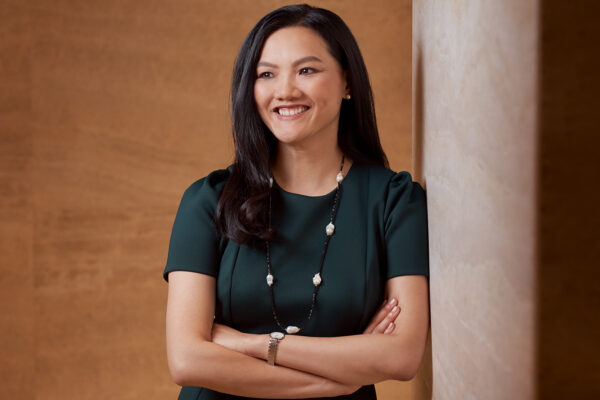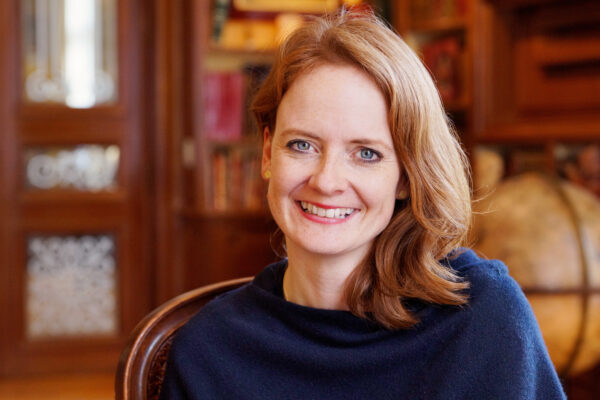
Despite succession planning being high on their agendas, many families are failing to do enough to involve younger generations in the management of their wealth.
Empowering the next generation to inherit wealth, while creating a robust governance for family wealth and investments, is crucial for families to preserve assets across generations, especially in the midst of the largest intergenerational transfer of wealth in history.
But many families fail to take basic steps when it comes to inheritance planning and are missing the opportunity to grow and evolve, by keeping the next generation away from the management of family assets.
Tech-savvy, more networked and global younger cohorts are keen to influence the allocation and impact of family investments and business, but the older generation is still largely reluctant to let go of control, despite succession being top of mind for them.
More than three quarters of benefactors want the inheritance process to go smoothly, minimising financial and familial discord, while 70 per cent want heirs to use their inheritance wisely, according to the 2022 UBS Investor Watch.
Yet, even after a pandemic, four in 10 do not have an updated will or a written estate plan. Half have not had inheritance conversations, disclosed where assets are held, how they intend to divide them or even how much they are worth.
“The senior generation don't necessarily consciously or unconsciously trust the next generation, particularly if it’s entrepreneurial wealth,” says Rupert Bentley, executive chairman at London-based family owned wealth manager Bentley Reid. That first generation is so focused on making money and do not think about legacy “until mortality comes into view”, he says, highlighting the importance of training and “emotional mentoring” for children. Without proper preparation, inheritors may struggle to manage sudden wealth effectively, which may lead to potential financial mismanagement, missed opportunities for growth, as well as familial discord.
The adage ‘shirtsleeves to shirtsleeves in three generations’ is supported by several industry surveys. A 20-year research project on 3,200 families by US-based wealth consultancy Williams Group shows 70 per cent of wealthy families lose their wealth by the second generation, and 90 per cent by the third.
“Conflicts between generations have been taking place for hundreds of years, but it is this creative tension that enables investments, businesses, and families to evolve with times,” says Maya Prabhu, head of wealth advisory and family governance for Emea at JP Morgan Private Bank.
The most successful families are those able to “adapt and thrive over generations”, incorporating new ideas brought by the younger ones. Often, smart family offices ask their offspring to identify businesses of the future, aware that some sectors may become “sunset industries”, she says.
A growing trend for families is to look at all their assets “in a more harmonious way”, identifying the impact they want to have in the world through philanthropy, investments and operating companies, based on their values and purpose for wealth. This more holistic approach strongly resonates with younger family members.
Establishing a family venture fund to encourage entrepreneurship in younger generations also works well. For many families “the key thing they're passing on to their children is the entrepreneurial spark”, adds Ms Prabhu.
Family harmony
Over the last 10 years, especially since the Covid-19 pandemic, families have become increasingly aware they can no longer only rely on the “hardware”, namely legally binding family agreements, to fulfil their legacy, says Alvina Lo, chief wealth strategist at Wilmington Trust, the private wealth management arm of M&T Bank.
While in the past patriarchs or matriarch had “strong desire to control money from the grave”, they have come to understand they also need to craft the “software”, by identifying family’s shared values and vision, while engaging the next generation in family discussions “to develop skill sets and bond”, while they are still alive.
“This is a huge opportunity for professionals and trusted advisers to help families have those difficult discussions around money and family and has led many wealth management firms to build their family legacy practice,” says Ms Lo.
Discussing investments, often seen as the clearest articulation of families’ purpose and values, is especially important for family harmony. Children mostly care about aligning investments with their values, and parents “should use the investment as a bridge to have that dialogue and engage the next generation” and not just think about the return perspective, she adds.
Often, advisers need to explain to next gens that speculative investments such as cryptos and NFTs are not suitable for trusts, and reach a middle ground, conveying the message that parents “are not going to invest in that individual company that your buddy created in fintech. But exposure to that sector may be possible through more established funds or ETFs.”

Growth-oriented
Generally, debates between generations around investments arise from different attitudes to risk and investment horizons. “Next gens have higher appetite for risk and more than a third intend to switch to a more growth-oriented investment strategy once they are in charge,” says Belinda Herzig, senior wealth strategist at BNY Mellon Wealth Management, referencing a 2022 study the bank conducted with Campden Wealth, focusing on millennials and gen X.
As a result, illiquid investments including private assets, hedge funds and commodities greatly appeal to the younger generation. More than half dedicate a large percentage of portfolios to sustainability and expect that proportion to rise. They also prefer emerging investments, like cryptocurrency, NFTs and new tech, investing 5 per cent of their portfolio in cryptos, compared to the average 1 per cent in North American families’ portfolios.
“In the next generation there may be a little bit of FOMO (fear of missing out) by having nothing invested in a popular asset class. But family offices or fiduciaries have the duty to be prudent investors, to listen, to be flexible but to balance risks,” says Ms Herzig.
The baseline goal, she says, is to preserve wealth and beat inflation, not necessarily “to triple the size of the portfolio”, as most clients already have enough wealth to provide for their lifestyle and leave a legacy.
Heads in the sand
As the next generation “step more and more into opining on portfolio allocation”, private markets are likely to increase in families’ allocations, according to Deutsche Bank. This is also a result of younger generations being more networked, collaborative and global. “With younger generations having greater access to information, and interconnectivity, we're starting to see a trend of family offices going toe to toe with traditional private equity houses, competing directly with them rather than go to them for a piece of the cake,” reports Antonio Risorto, head of wealth planning for the UK at Deutsche Bank Wealth Management.
“Families need to appreciate they cannot do what they've been doing for the last 100 years, the world has evolved, family dynamics have evolved, and the voice of the younger generation needs to be heard, otherwise opportunities may be missed.” But many families are still “burying heads in the sand”, not acknowledging a forthcoming transition of family wealth, with new ideas, and methodology for investment. This is why it is vital to create a framework around family wealth, with advisers acting as “independent referees or arbitrators to mediate family dynamics”, believes Mr Risorto.
Trial and error
Wealthy families have “the luxury” to empower the next generation by giving them access to a smaller pot of money, creating a “more controlled” environment to try out investment ideas, make mistakes, express biases, helping them define their purpose, says Bentley Reid’s Mr Bentley.
“The challenge sometimes is for the first generation to remember they became successful by building experience but also failure on their journey, and that they need to afford the second generation that latitude,” he says. “It is only through trial and error that people can deliver alpha and find good outcome opportunity.”
While parents’ key concern is that wealth may take away motivation and drive in children, there are successful examples of parents giving teenage children the ability to buy and sell shares “under the watchful eye” of the family stockbroker or investment leader.
“Younger generations are interested in digital assets, but not just in trading. They're interested in the technology, in the ecosystem, and in disruption aspect of digital assets, and will want to participate,” he says. Rather than rejecting the whole idea, the senior should let the younger cohorts explore the space and empower them in a way that is proportionate and suitable. Increasingly, ultra-high net worth people who previously completely dismissed the space are now engaging with it, he adds.
Another popular and successful way to educate the next generation is through philanthropy. “Allowing some control over philanthropy dollars is seen as a non-threatening way for both parents and children to educate and empower the next generation,” says Jacqueline Valouch, Deutsche Bank’s global head of philanthropy and head of wealth planning for the US.
The younger ones are given a yearly budget of how much they get to give away to their chosen cause, having to make a case for why the cause they select deserves the grant, she says. This approach leads to stimulating family conversations, taking pressure away, as parents have already allocated that pot of money to charity.

Engaging younger generations
With research showing most children switch advisers upon inheriting wealth, engaging younger generations as early as possible is critical for private banks’ sustainability too.
“Advisers need to build trust and good relationships with different generations, taking time to listen, without jumping to assumptions, biases and stereotypes,” says Marianna Mamou, head of advice beyond investing at UBS Global Wealth Management’s chief investment office.
“The best advisers are empathetic, offer jargon fee explanations, and are able to have conversations around client goals and objectives,” she says. In the future, these skills will be much more important and key to success as wealth transitions. They are especially valued by women, increasingly wealth creators and set to inherit a large part of the wealth in motion. Today, 70 per cent of them switch financial adviser within a year of inheriting.
While younger generations are more self-directed, the financial world is today very complex. And being more international, with businesses and portfolio investments in different countries, they also need access to advisers, adds says Viola Werner, head of global next generation solutions, UBS GWM.
“The biggest skill for an adviser is the ability to meet the next gen on a human level,” she says, and advisers should try and get to know the children, their views, and objectives, as soon as they attend the first client meeting with their parents.
Not only do banks need to focus on reputation and “authenticity” to engage young generations, ventures Ms Werner, but they must also build “a systematic approach to next gens and adapt their coverage model to their needs”, from advisory and marketing to communication and reporting.
“Banks need to be bold enough to appreciate they don't have everything for the next gen in house and may want to extend their business model from service provider to network orchestrator,” says Ms Werner. She brings as an example the long-standing partnership that her bank, though its former Credit Suisse entity, has with the Young Investors Organisation (YIO), aimed at accelerating next gens’ knowledge to become responsible investors, while learning from and being inspired by peers.
KPIs
While private bankers are increasingly aware of the importance of establishing long-term family relationships, bank bosses are urged to adjust their key performance indicators (KPIs) accordingly.
Bankers face the “trade-off” between spending time with next gens, who are not decision makers yet, and taking care of existing clients who might contribute more to their KPIs, according to a source at a large private bank.
Banks’ leaders should have a longer-term view, valuing not only the financial capital but also the social capital. “Besides financial assets, relationship and trust is the biggest capital that banks have,” says the senior banker, suggesting new metrics should be added to encourage advisers to have several meetings with next gens each year.
Engaging with next gens is crucial for banks’ survival but, most importantly, it allows bankers to plan well for the family, insists Deutsche Bank’s Ms Valouch.
“You want to be talking to the next generation and know what's going on in their world so that you can properly plan and invest for the current client, not just with your eyes set on hoping to capture the future client.”



